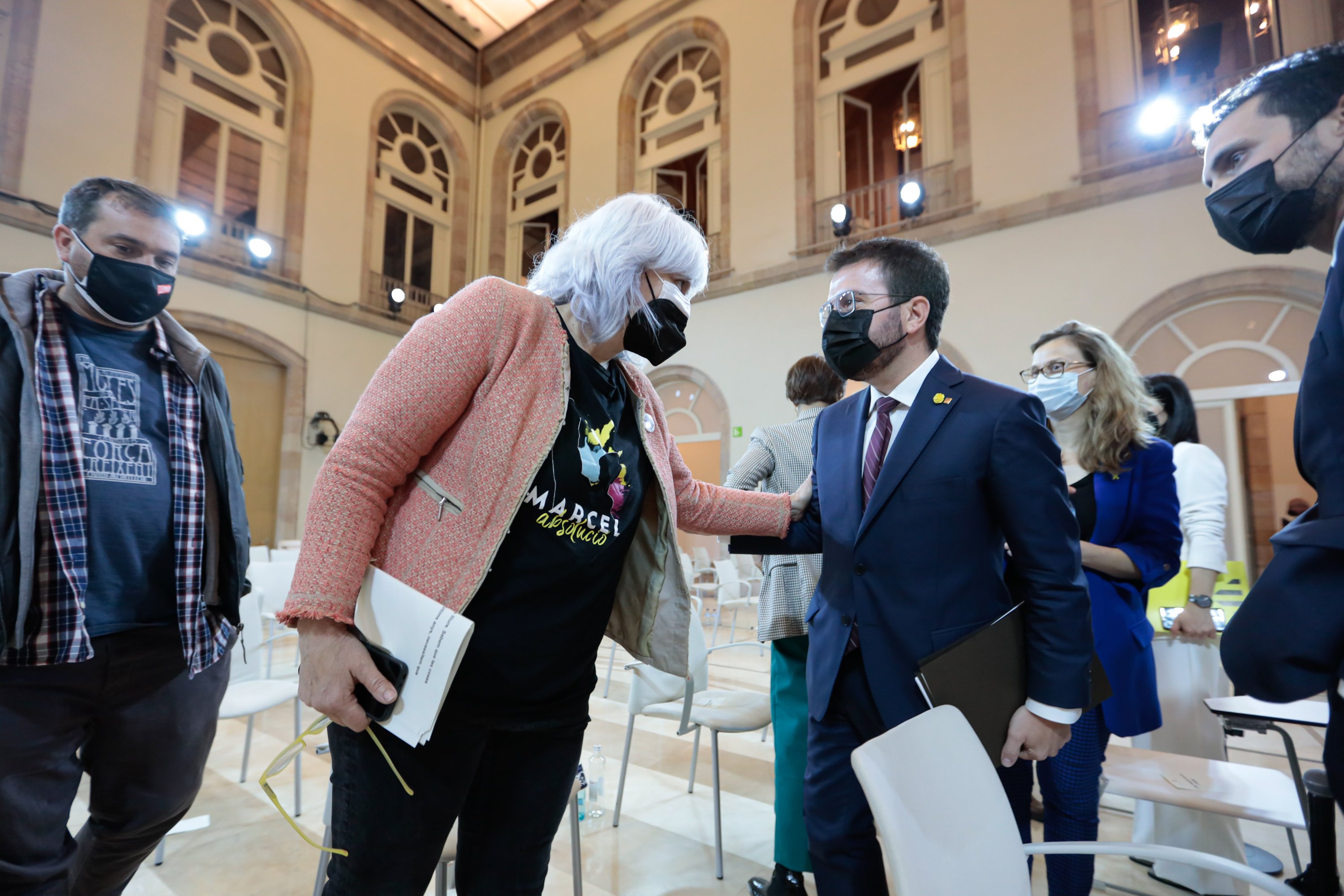Rivers of ink have been poured out in speculation that, for the first time, the far-left, pro-independence CUP (Popular Unity Candidature) will become part of the next Catalan government under the helm of the Republican Left (ERC). Having already taken up a seat on the Bureau of the Catalan Parliament, the anti-capitalist party are now ready to take this further step. But they are in no rush. For now, "there are no conditions," acknowledged Mireia Vehí, CUP MP in Congress, in an interview with Spanish public television.
After a decade of experience in opposition, the CUP have adopted a proactive attitude from the beginning in this legislature. “We won’t be a problem,” they state. They were the first to seal a pact with ERC to facilitate the formation of a Catalan government led by Pere Aragonès. However, despite being satisfied, they are clear that "the agreement is not profound enough for us to enter government." Their aspiration is to improve it and, above all, to make sure that the Republicans don't disdain it. That is why it includes a confidence vote in mid-term.
Join executive in 2023?
The conclusion, after listening to the comments of the CUP leaders, is that if they end up deciding - after consulting the party rank and file - to join the Catalan executive, it will be halfway through the term. The document agreed with ERC states that "from a position of criticism and skepticiam", the CUP undertakes to give "a certain period of time to the existing negotiating table" with the Spanish state. Later it is specified that during the first half of 2023, the results obtained will be evaluated. As long as the commitment to this dialogue space is maintained, and as long as no progress is made on an amnesty and the referendum, the CUP will remain outside the government. Without getting in the way, but without being there. "We will not be part of a government that gives air to a dialogue table which we think is exhausted," Vehí said.
But not only that, the idea of the CUP is to let the Aragonès government get itself underway in order to certify whether, indeed, it is working in accordance with the deal made between the two parties and beginning a clear turn to the left. For example, towards 100% public health, or exploring the application of a universal basic income for the first time.
Junts needs to "accept the election result"
From here, the CUP urges ERC and Junts to unblock the sticking points to an agreement in order to form a government as soon as possible, and the far-left group invites Puigdemont's space to "accept the election result", which they summarize in the fact that "the people have voted more for the left and more for independence." In this regard, they recall that disagreement between the two major pro-independence actors would make way for the PSC to regain the initiative. Vehí is confident that a pro-independence understanding will eventually arrive, because she does not imagine "Junt precipitating new elections." However, she does think it's taking too long.
With regard to the risk that in order to get along with Junts, ERC will trim down the agreements reached with the CUP, the anti-capitalists argue that the points included can be pushed even with the Junts in government. Vehí's reflection is that "Junt must be understood beyond right and left, it is not fair to read them as right or left", but what is accurate is to say that there are people in the party who do not match a left-wing political profile, such as Joan Canadell".
In the main image, Aragonés and Sabater talk during the first investiture session. / ACN

